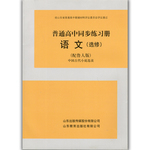题目内容
Do you suppose Darwin, one of the greatest scientists of all time, really did fools experiments? Or did he do experiments that were so simple and basic that other people just thought they were foolish?
Sometimes, people think they already know the answer to a question or the solution (解决办法) to a problem. Sometimes, they really do know an answer or a solution, but without thinking they are important.
Charles Darwin didn’t settle for (满足于) just thinking he knew something. And, he believed all things could be important however simple they seemed to be.
Suppose you drop sheets of paper that are of exactly the same size and shape. If you drop them at the same time in the same place, they will fall in the same way. Now make one of the sheets of paper into a tight (紧的) little ball and let it drop along with the other sheets. What happens? You have done an experiment that is so simple that you might think it couldn’t be worth anything.
But this simple experiment is important. It explains part of our present-day understandings of physics, ideas that were worked out long ago by Galileo and Newton. And these understandings set aside some of ancient Greek physics.
Scientist sometimes stops to look at very simple things and to think very hard about them. Even the simplest idea, which we might think is foolish, can shake the foundations of science.
1. The passage tells us that Charles Darwin ____.
A. was a great English scientist
B. always liked doing the experiments that others thought difficult
C. thought even the simplest thing was important
D. didn’t get well with others
2. The phrase “set aside” most probably means____ .
A. throw away B. store up
C. put to use D. realize
3. The author of the passage tries to ________.
A. convince us that Charles Darwin, Galileo and Newton are the greatest scientists in the world
B. draw the conclusion that basic sciences are simple things
C. prove that two sheets of paper, with the same size and shape, will fall at the same speed
D. draw our attention to everyday happenings around us
4Which of the following is TRUE?
A. Darwin really did fools experiments.
B. According to some people Darwin did foolish experiments.
C. It is believed by all the people that things could be important though they seemed to be simple.
D. Galileo and Newton worked out ancient Greek physics.
【小题1】C
【小题2】A
【小题3】D
【小题4】B
解析:
1. 【小题1】本题为判断题。短文并没有说 Charles Darwin是哪个国家的科学家,可排除A;由第二段可知别人认为Darwin的许多实验不值得做,可把B排除;文中没有论述Darwin与别人相处的事情,可排除D。由“he believed all things could be important however simple they seemed to be.(Para 3)”可推出答案C。
2. 【小题2】 本题为词义猜测题。由上文可知作者认为做这个简单实验是重要的,它解释了目前人们对于物理方面的理解。因此这些理解当然是推翻了一些希腊古典物理学的观点。由此可推知set aside与throw away同义。
3. 【小题3】 本题为主旨大意题。短文的最后一段点明最简单的事情都可能动摇科学的根基,意在告诉读者要留意身边的每一件事,哪怕它非常简单。
4. 【小题4】 本题为细节考查题。短文第一段第二句“Or did he do experiments that were so simple and basic that other people just thought they were foolish?”明确告诉我们,有些人认为Darwin做了愚蠢的实验。

 海淀黄冈名师导航系列答案
海淀黄冈名师导航系列答案 普通高中同步练习册系列答案
普通高中同步练习册系列答案